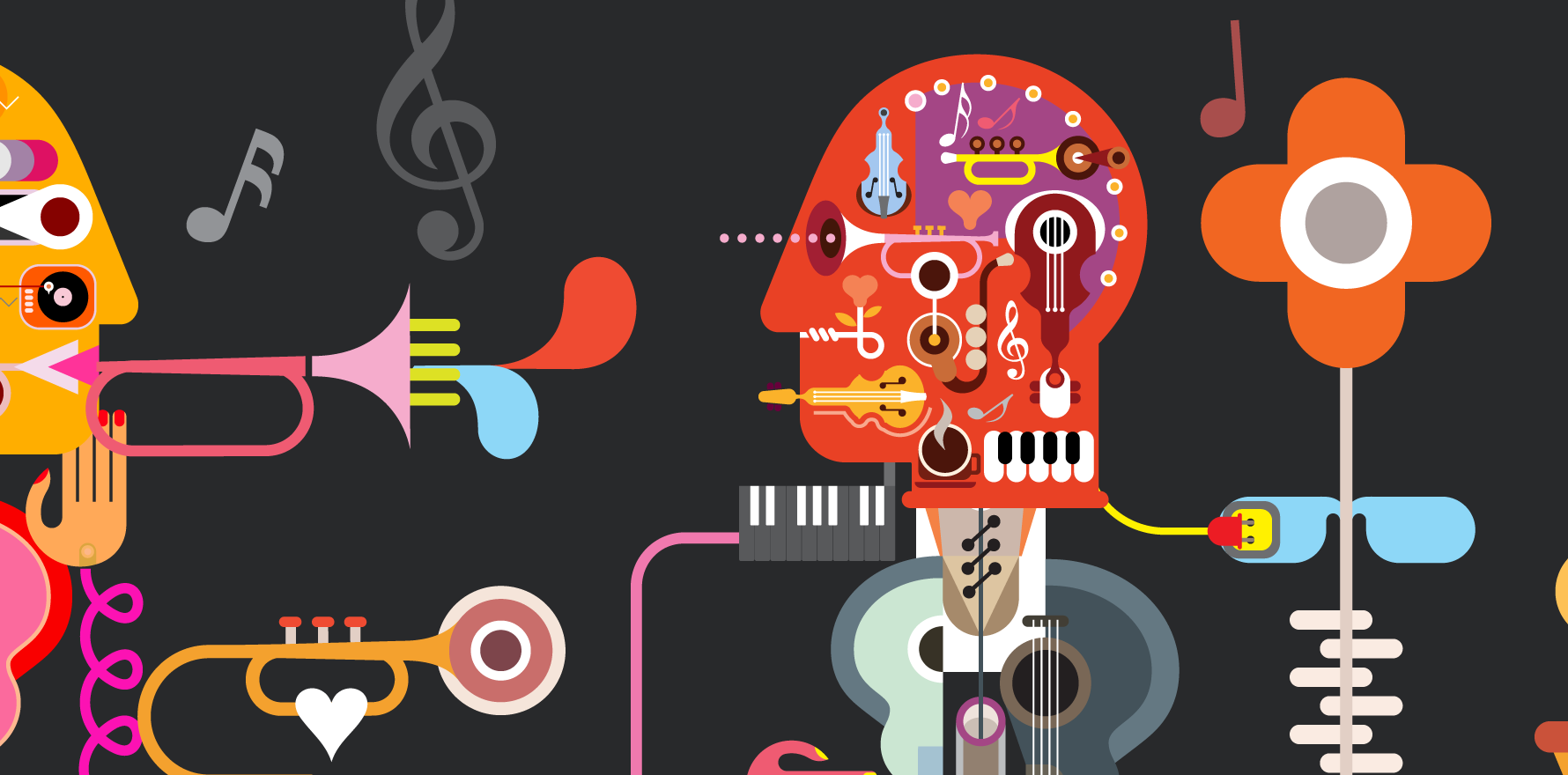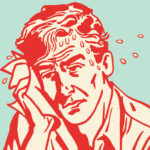Well, yes, obviously. But this ancient artform still has enormous therapeutic potential in a wide range of afflictions.
“Music [is] a fundamental way of expressing our humanity – and it is often our best medicine.”
– Oliver Sacks
Of all humankind’s discoveries, music is among the most extraordinary. Nobody quite knows how long music has been around, but the world’s oldest known (alleged) musical instrument, the Divje Babe flute, dates back at least 40,000 years.
Technological advancements over the millennia have seen significant changes in the way music is made and with this has come a slowly evolving understanding of the intersection between music and health. Aristotle and Plato asserted that music could promote order in the soul. The first study on music therapy was published in 1789 and the first attempts at systematically examining the music-health relationship began in the 19th century.
In March this year, JAMA published a systematic review and meta-analysis on music interventions and health-related quality of life, where it concluded what musicians intuitively know: that music interventions (be they playing or listening) resulted in clinically meaningful improvements in mental health-related quality of life, though the studies were too varied to draw conclusions on preferable interventions and doses for use in specific clinical scenarios. This study was significant as it provided the first quantitative evidence of clinically significant improvements in wellbeing and health-related quality of life associated with music.
A 2017 Cochrane review found music therapy to be an effective short term therapy for people with depression, with it also decreasing anxiety loads and increasing functioning in affected individuals. It’s even been found to have a promising role as an adjunct therapy for schizophrenia.
Systematic reviews and meta-analyses have found that music helps adults with primary insomnia and improved sleep quality in older adults. The RACGP’s Handbook of Non-Drug Interventions acknowledges this, by including music for insomnia in adults, listing it as Grade 1 NHMRC evidence.
Music has been found to be a potentially powerful treatment strategy for dementia, improving cognitive functioning, associated depression, and quality of life. Research published last year that integrated dementia caregivers found that music intervention could increase personal connection and bonding. This research speaks to the remarkable way in which music seems to deeply embed itself into our brains and is able to remain there despite sometimes significant neurodegenerative changes, where nearly everything else falls away. Playing music may even be protective against the development of dementia. Researchers in Sydney are currently looking at the role of music in those with mild cognitive impairment in warding off further decline.
Various studies have examined the role of music in hospitalised patients. A 2015 systematic review and meta-analysis found that music reduced post-operative pain and anxiety, and analgesia use, and increased patient satisfaction. A study published this month found that perceived control over music choice in this setting was associated with analgesic benefits. One meta-analysis found a 50% risk reduction of delirium in post-surgical and critically ill ICU patients. Somewhat adorably, music has also shown potential in decreasing stress in hospitalised babies (though when you consider the clear effect of lullabies on babies, this is hardly shocking).
Similarly unsurprisingly, music’s benefits have been found to extend to exercise, where it has been found to enhance athletic performance, improve physiological efficiency, and increase the enjoyment of exercise.
This list is far from exhaustive. Music intervention has been found to play a role in the management of conditions such as Parkinson’s disease, post-stroke aphasia, traumatic brain injury, autism spectrum disorder, and more.
The ways in which music can lead to these effects are varied and vast. Music has been found to affect regions including the frontal lobe, temporal lobe, Broca’s area, Wernicke’s area, cerebellum, nucleus accumbens, amygdala, hippocampus, corpus callosum, and putamen, and affect the regulation of chemicals such as cortisol, oxytocin, and dopamine. Clearly, music activates virtually every part of the brain.
To musicians – or simply those who love music – these findings will appear entirely expected. To those who are so inclined (and it’s crucial to acknowledge here those with “musical anhedonia”, for whom music does nothing), music can elicit powerful emotions and enrich their life. Like a good book, magnificent tree, or delectable dessert, music simply makes life beautiful. To paraphrase Aaron Copland, it is an inextricable part of the human spirit. It contributes to making humans what we are.
Those in the tech sector appear ahead of the curve with respect to the music-health relationship, with companies like Apple and Spotify planning how to better marry up their music platforms with wellness outcomes for their users. Meditation apps such as Calm curate their own playlists.
Medicine is a conservative field, so changes that occur within it are often slow. This is obviously for good reason – interventions should be validated before being incorporated into clinical practice. But as RACGP’s relatively new Social Prescribing specific interest group is testament to, there is a growing desire by patients and clinicians alike to formally include more non-pharmacological options into models of care. And we know that music is non-invasive, cost effective and without harmful side effects.
For now, this may look like encouraging patients to pop their headphones on while having an IVC inserted, or a basic procedure like a biopsy done, or after their operation when they are back on the ward. In the future, though, it may look different, and even be a part of public health initiatives.
I look forward to the day when music is as normal, accepted, and evidence-based as any other intervention.
Now if you’ll excuse me, I’d better go and practise the piano.
Dr Brooke Ah Shay is a GP in Maningrida in Arnhem Land.





